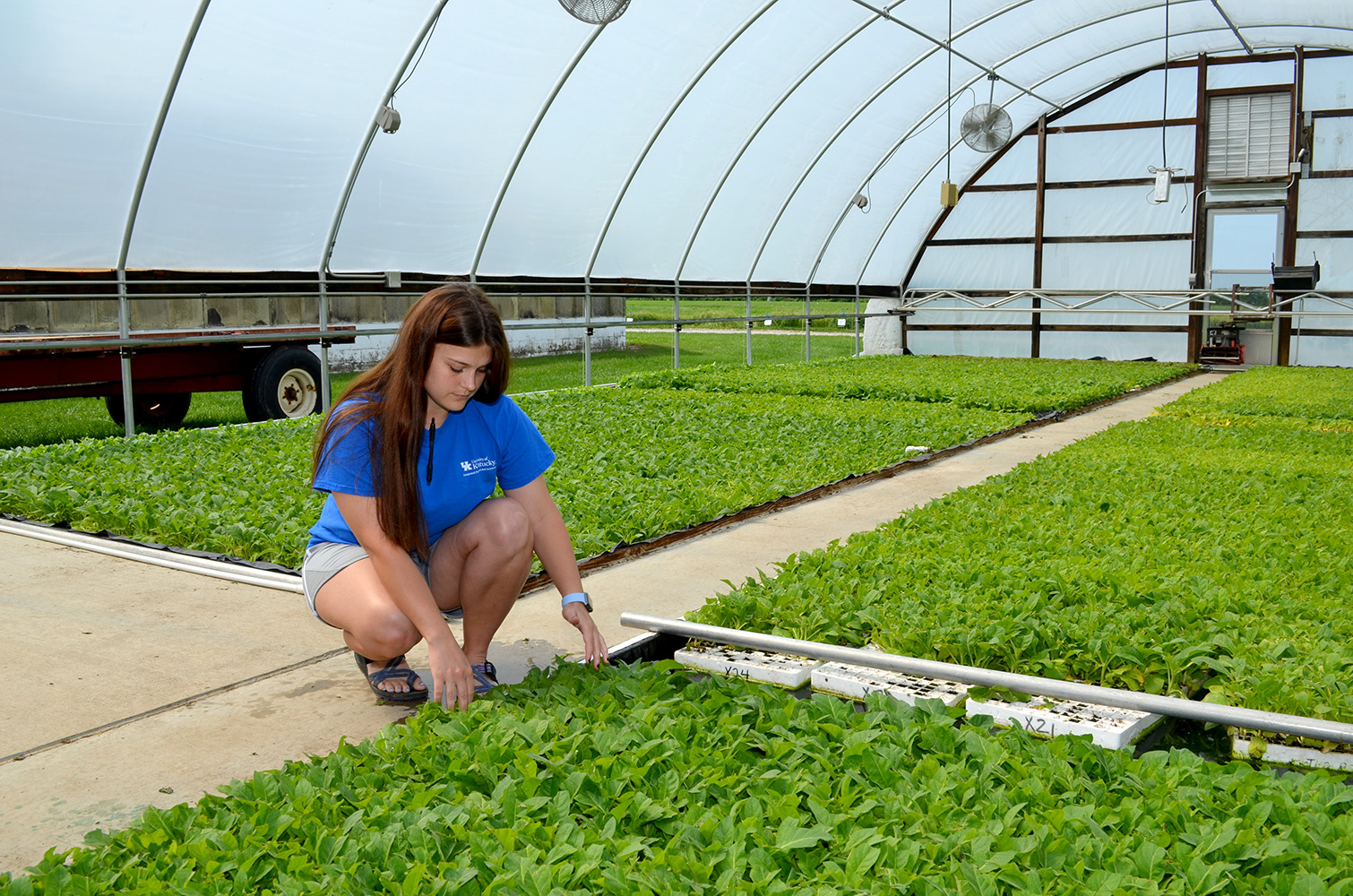UK research shows promise in lowering tobacco TSNA levels
UK research shows promise in lowering tobacco TSNA levels

University of Kentucky researchers have found that tobacco producers may be able to significantly lower carcinogen levels in their plants by switching their fertilizer.
Andrea Keeney, UK College of Agriculture, Food and Environment graduate student, found that fertilizing plants with potassium chloride instead of the traditionally used potassium sulfate resulted in significant reductions in tobacco-specific nitrosamines, known by the acronym TSNA and one of the most important groups of carcinogens.
Growers typically do not use potassium chloride, because chloride has had a tendency to affect curing, resulting in poor quality tobacco. Kentucky fertilizer law also limits the amount of potassium fertilizer that producers can apply to tobacco.
Under the advisement of Andy Bailey, UK dark tobacco extension specialist, and with funding from the R.J. Reynolds Tobacco Company, Keeney began conducting her study in dark tobacco research plots in 2016 at the UK Research and Education Center in Princeton. With results showing promise within the first year, her project expanded to include burley and additional research plots in Murray and Lexington for the next two growing seasons. All plots had varying rates of potassium chloride that ranged from 100 to 300 pounds per acre.
“Every trial where we used potassium chloride had lower TSNA levels, and nine of the 12 trials had statistically significant reductions in TSNA levels,” Keeney said. “On average, we saw a 30% decrease in TSNA levels with the potassium chloride treatment.”
The study also showed a 34% average reduction in the nicotine-derived nitrosamine, NNN. Plants in Keeney’s research project had minimal quality issues.
“This has been one of the most consistent things that we have ever seen to reduce TSNA levels,” Bailey said. “We were also really surprised that there are no quality issues that we could detect.”
In addition to lowering TSNA levels, potassium chloride is a cheaper fertilizer source, in some cases between one-third to one-half of the cost of potassium sulfate.
A daughter of a tobacco farmer from Nancy, the promising results were particularly meaningful for Keeney.
“Finding a technologically achievable way to reduce TSNAs in tobacco that also could save farmers money in the process is a great outcome for everyone,” she said.
Research may advance to commercial growers who contract with R.J. Reynolds in the future.
Research



